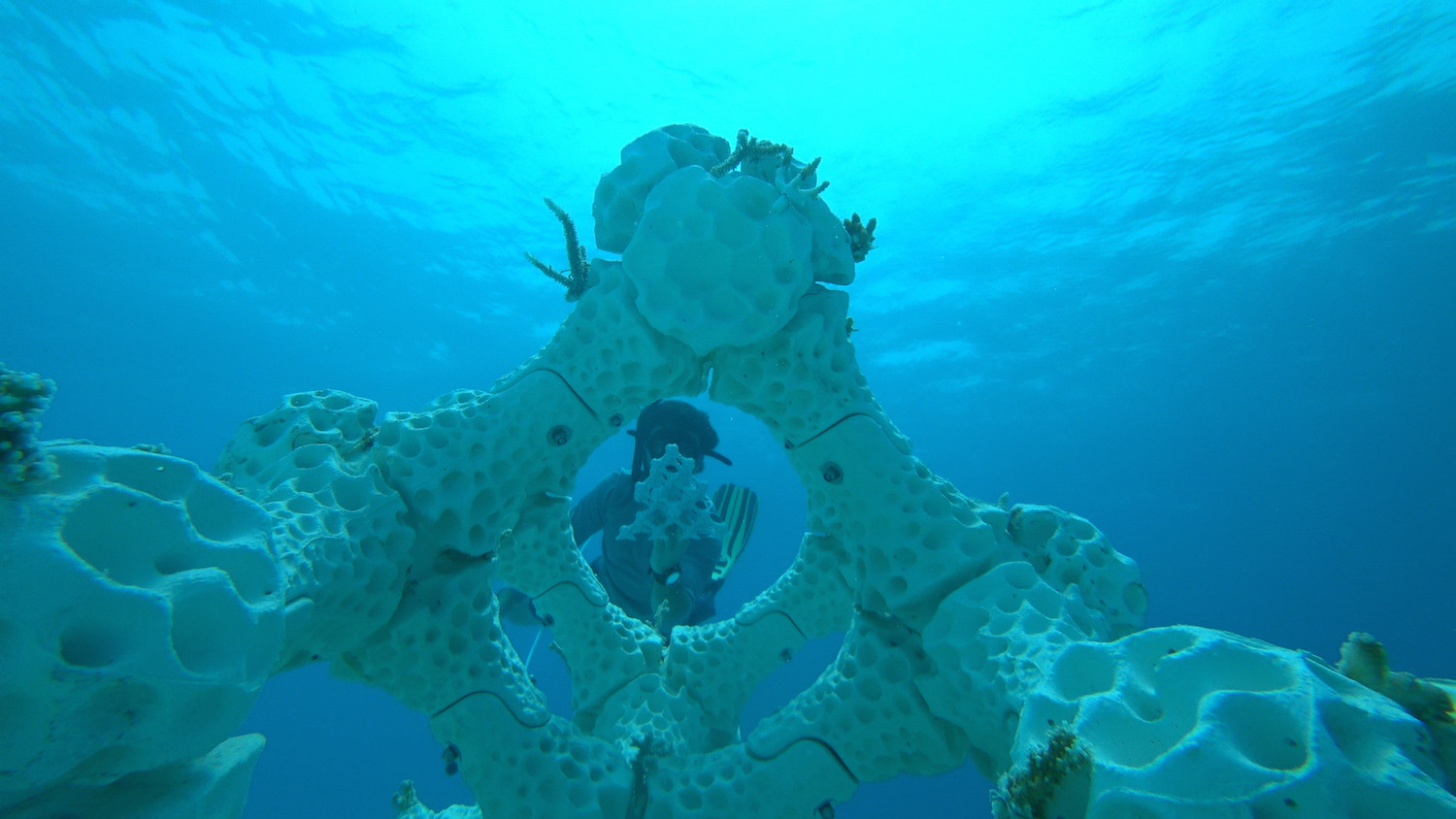

Summer Island Celebrates Two Years of Man-made Reef Structure
Wednesday 12th of August 2020
Summer Island Celebrates Two Years of Man-made Reef Structure
Summer Island Maldives celebrated yesterday its two-year milestone of installing and submerging the world’s largest 3D printed coral reef structure, in the hope that this technology-driven method will help coral reefs survive a warming climate. The artificial reef, assembled with hundreds of ceramic and concrete modules, was submerged at Summer Island’s ‘Blue Lagoon’ – a sandy part of the lagoon, where the resort hopes to create a new coral reef ecosystem.
The project started in a lab in Melbourne, Australia, where industrial designer, Alex Goad of Reef Design Lab used sophisticated computing modeling to design reef moulds similar to the coral reefs found naturally in the Maldives. With a large 3-D printer whirring away for 24 hours to print moulds of the reef structures, these moulds were cast in ceramic – an inert substance, similar to the calcium carbonate, found in coral reefs, into the ocean.
Initially, the project was implemented with the hopes that corals will grow over the 3-D reef, and revitalize the ocean with a new, natural looking reef, teeming with fish and marine life. Summer Island believes that if the 3-D printing technology proves more successful at growing corals than existing coral propagation methods, it could be a novel way of helping coral reefs survive a warming climate. Ultimately, Summer Island aspires to promote a culture of environmental stewardship, not just across its island, but across the whole nation.
The Maldives is one of the world’s most climate-vulnerable nations. Rising sea temperatures pose a grave threat to the world’s coral reefs, and mass bleaching events are becoming more common and more severe. This is not just the only environmental protection act Summer Island Maldives has implemented. They have had a number of recent environmental initiatives, including the adoption of solar energy, a ban on the use of plastic straws, phasing out imported drinking water, and coral conservation projects.